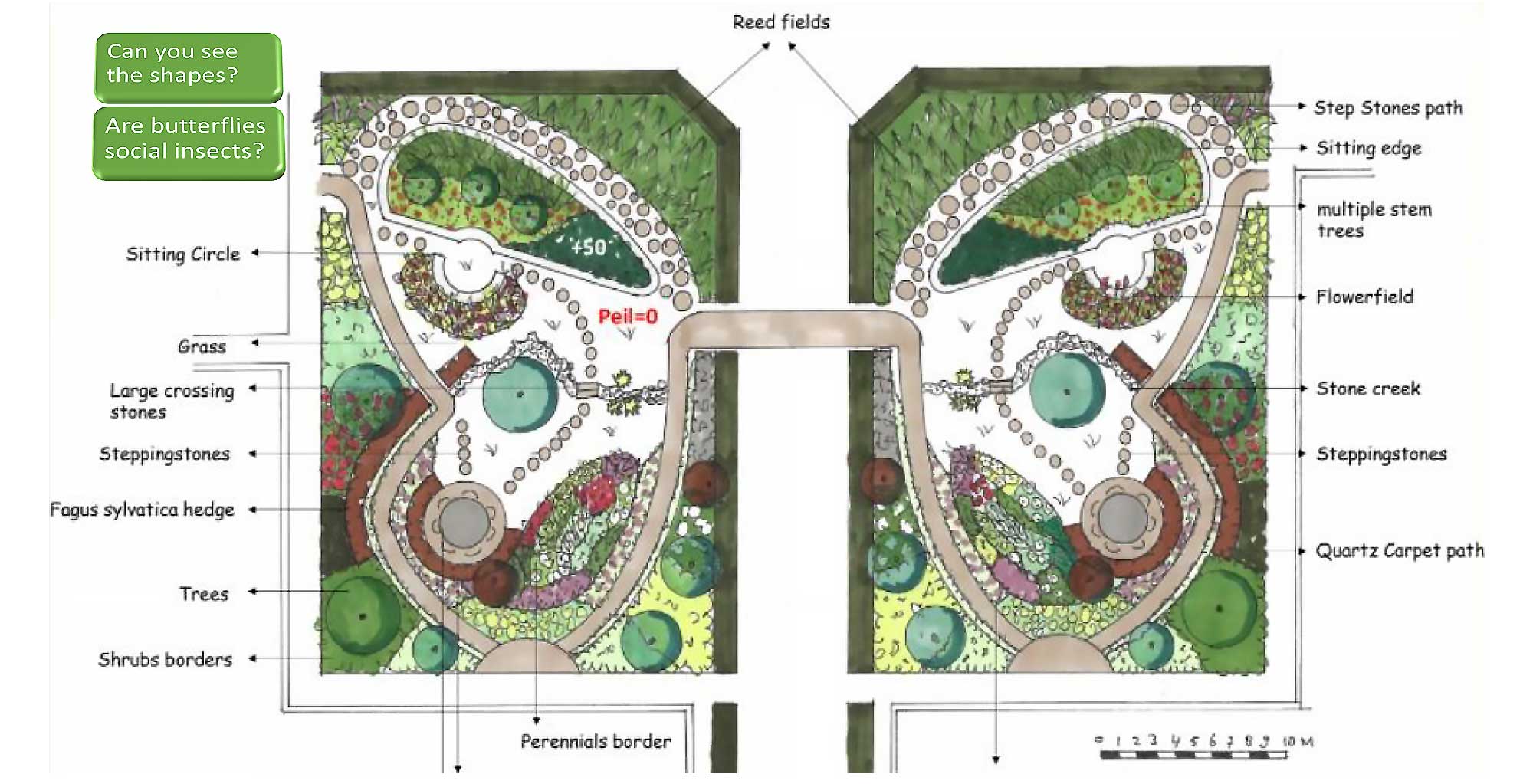Atalanta – Our Friendship Garden

The Elementary Student Council has discussed the expectations of the garden and recommends ‘Atalanta – Our Friendship Garden’ as their favourite name. Atalanta stands for the Red Admiral butterfly, which is found in most temperate climates worldwide. It is a people-friendly butterfly, strong-flying and known for its beauty and preparedness. Atalanta prefer to live in groups, which helps them to escape from dangers, including predators. The group also allows them to stay alert. Some people believe that if you see a red butterfly entering your home, it means happiness is coming into your life. Green and orange/red are also our school colours.
Eleyna Rodger, AFNORTH student, 10th grade was set a challenge for her course work to write a report. She describes the latest AIS project as it was evolving and before our new friendship garden was opened.
Keep calm and enjoy being aware of your senses – our garden is a place to explore, relax, read, reflect; encourage mindfulness.
Please move around quietly, speak in a low voice, be reflective
Enjoy the different textures – walking on the paths or sitting on the grass.
Enjoy observing as you stroll around our friendship garden, using the appropriate walking speed as you move from one stepping-stone to another or whilst crossing the dry riverbed.
Respect nature, animal life as well as plants. Our friendship garden is designed to attract insects, birds, and butterflies. Flowers need to be left to bloom.
Read the labels and learn the plant names.
Keep our garden clean.
Do visit our friendship garden with permission from your teacher if appropriate, and have fun exploring.
Remember Our Friendship Garden is a place for quiet refection, observation and to relax. It is not for an area to run around. Please respect this special area.
Stimulating the senses; encouraging to touch, smell and interact with the environment
Being creative with colour, seasonal contrasting, different materials
A calming place to explore, relax, read, reflect; encouraging mindfulness
A place to learn together – a teaching and learning resource for encouraging mathematics, science, language and the arts
Designed to attract insects, birds and butterflies
Providing linked pathways, steppingstones and seating for individual and quiet group interaction
Luuk & Ellis Silverentand
Made the design of the garden a reality for for us and repaired our AFNORTH Lions
Ziggy Beckers – helped to transfer our vision into a design
Diederik Hol – Designer of our Insect Hotel
Fam Scheuvens – Designer of our prototype Sundial
The early intelligence of humankind is perfectly exemplified in the sundial, an ancient creation that has stood the test of time. Before clocks were invented, people generally relied on the passage of the sun through the sky to tell time. One of the most important early devices for telling time was the sundial.
A sundial is a horological device that tells the time of day when there is sunlight by the apparent position of the Sun in the sky. Generally, it consists of a flat plate and a gnomon, which casts a shadow onto the dial. The history behind the sundial is fascinating – and this innovation is well worth further research. Even today, NASA use sundials. Two previous Mars missions, the Spirit and Opportunity rovers that landed in 2004, each carried a sundial – or a ‘Marsdial’ as it was called.
The AIS Sundial has been creatively designed especially for AIS using recycled materials. Can you identify what the parts of our unique Sundial have been previously?
Our BeeLoft insect hotel supports the promotion of biodiversity in an environment. The BeeLoft, with a Cor-Ten steel hull, offers a shelter and nesting place for many species of wild bees, solitary bees, bumblebees, butterflies, and other insects when visiting Our Friendship Garden. You can see twelve cassettes placed in the cabinet, and they provide nesting or hiding places for different species. The cassettes are filled with materials that are proven nesting places for insects. One nest box is designed as a butterfly box.
We hope you will enjoy observing all the minibeasts that will use our insect hotel as a safe space to shelter, lay their eggs, raise their young, and seek refuge from predators.